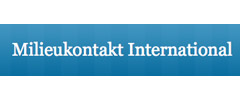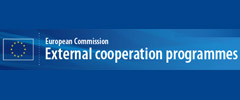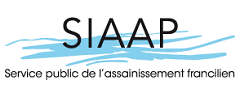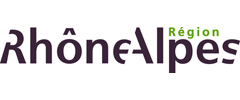WECF and MAMA-86 present results 3 year MATRA project Ukraine
More than 100 participants at multi-stakeholder seminar on public participation in water sector improvement
09.10.2006 |Anna Tsvetkova & Sascha Gabizon

MAMA-86 also published the Ukrainian translation of the WECF publication "Urine diverting Toilets; P principles, Operation and Consruction" on their website.
More than 100 participants from national and local government, water companies, national and international environmental organisations and international experts took part in the seminar „ Public participation in improvement access to safe drinking water and sanitation in the rural areas of Ukraine”.
The seminar was organised by the Environmental NGO “MAMA-86” together with “Women in Europe for a Common Future” (WECF) and with support of Ukrainian Water Association.

Participants
MAMA-86 and WECF presented a part of the results of their 3 year project “Cooperation for sustainable rural development”, which is funded by the MATRA program of the Ministry of Foreign Affairs of the Netherlands.
Three villages as an example for rural areas
More than 8.000 people in 3 pilot villages benefited from the project.
The pilot projects in the 3 villages – Vorokhta (Ivano-Frankivsk, Western Ukraine), Gozhuly (Poltava, Eastern Ukraine) and Bobryk/Vertijivka (Nizhin, Northern Ukraine) – have different sizes and different problems. The solutions developed during the project are an example for other rural municipalities in Ukraine.
The project focussed on 3 areas: improving safe water supply, improving sanitation and improving agriculture. By improving sanitation and agriculture, the water quality is improved as well.

Sascha Gabizon, International Director of WECF
The main part of the seminar was devoted to problems of wastewater management in rural areas. The water tests carried out by the project team indicated pollution of well water by bacteria, nitrates and other pollutants infiltrating from pit-latrines, animal manure, old fertilizer stockpiles and the presence of natural fluoride in the drinking water in Gozhuly.
To address the problem of human faecal bacteria found in drinking water, a new sanitation technology was tested; dry urine diverting toilets also referred to as ‘ecological sanitation’.
Sanitation for more 385 school children.
In Gozhuly village the school with 350 children received a new school toilet building. The new toilets are build inside the school, using the dry urine diverting system. The old pit latrines were at 80 meters distance outside the schoolyard. The children and teachers are very pleased with the new system, which has the added advantage of not polluting ground water and not using water to flush.
In Bobryk village the school with 35 children also obtained a new inside toilet, using the ecological sanitation method. Furthermore, 7 families families in Vorokhta and Bobrik builtd dry urine diverting toilets, using a seat riser mould from Mexico.

Prof. Otterpohl from Hamburg-Harburg University of Technology speaking at the event on ecological sanitation
Seven hundred villagers received improved water supply
Almost 700 rural inhabitants obtained improved access to safe drinking water. In the village Vorokhta a 195 m extra branch pipe was installed, which provides 100 inhabitants of the village with a connection to the central water supply system. 5 public wells used by 100 inhabitants for drinking purposes were cleaned. In the village Bobryk, 2 school wells (one for drinking and the other for technical purposes) were renovated and in the village of Vertijivka a well for the kindergarten was built. In the village Gozhuly, a public well used by 98 families (280 inhabitants) was repaired.
The attention of the project on lack of safe water supply and sanitation has had the additional positive result that a larger share of the Ukrainian state budget was allocated for replacing of main water-supply pipes of Gozhuly and Vorokhta. Almost 2000 inhabitants of these project villages thus improved their access to drinking water.
School sanitation attracts now the attention of the authorities in the region Poltava
Key international experts
Well-known international experts contributed to the seminar. Professor Ralf Otterpohl, Hamburg Technological University (TUHH), lectured about ecosanitation development in the world. Martina Hammer, TUHH expert, lectured on problems of appearance and degradation of pharmaceuticals from wastewater in water and agriculture. Gunnar Noren, executive secretary Coalition “Clean Baltic”, gave an example of sustainable wastewater management in the Baltic Sea basin. Kajetan Hetzer, representative of SNS REAAL Bank from the Netherlands, presented their new 50 million Euro Water Fund aimed at realization of water projects based.
The seminar was a chance for other members of the WECF network, from Karakalpakstan and Armenia, to exchange their experience with drinking water and sanitation improvement projects.
Main conclusions and recommendations
Anna Tsvekova of MAMA-86 and Sascha Gabizon of WECF presented the main conclusions and recommendations of the project. They argued that the main lessons for other rural areas of Ukraine are that the real long-term solutions will need a national effort, from all sectors.
- Rural municipalities will need to set up regional water companies, where they cooperate with other rural municipalities, so that together they can apply for larger funds to rebuild the infrastructure and allow for proper maintenance and operation.
- Stricter water protection measures on local and regional level are needed to stop and to prevent further ground or surface water pollution with nitrate, faecal bacteria or other substances.
- Persons in charge of the water supply systems are no longer politically appointed. Currently, when the government changes, the water staff changes. This is of course an impossible situation. Specialists are needed for such jobs; they should not change every few months or years.
- Those responsible in the water companies and other public agencies should be given the possibility to ring the alarm bell. Currently, when there is a problem, those responsible try to hide it. When a drinking water well of a school is found to be too polluted for consumption, the well is often closed. But that is not a solution. Ukraine should have emergency policies in place for such cases; there should be a tank-wagon with clean water coming to the school until another solution has been found.
- Bureaucracy (red tape) needs to be reduced. Currently, when a solution exists, e.g. when a new school toilet can be build, because funds are available, then it becomes almost impossible because of the mountain of permits needed. We propose that the cases that have come out of this project serve as a basis for a national multistakeholder commission to reduce bureaucratic barriers for improvement of water and sanitation.
- Ukraine needs to negotiate different agreements with international financing organisations. The EBRD has a special programme for Tajikistan where it invests in small rural towns. If it exists for Tajikistan it can exist for Ukraine. But the Ukrainian government has to let the funders of the EBRD know that they want this. The funders of the EBRD are countries like the Netherlands, who have also funded these pilot projects.
- Ukraine should develop a rural development strategy. This strategy should be partly financed by national funds, and partly by international loans. It should focus on capacity building of regional water agencies and companies, with a strong multi-stakeholder involvement. A first programme of this rural development strategy should be to provide safe sanitation and water supply in all schools in rural areas. The health of our children should have the utmost priority.
- Finally, policies and actions to improve water supply, water quality and sanitation can never be successful without taking into account the agricultural sector. Agriculture is one of the main problems. It causes water pollution (pesticides, fertilizer, lack of management of animal excrements). Therefore, agriculture is also part of the solution. Old pesticide waste dumps like the one in Bobryk need to be cleaned up with great urgency. Farmers need to be trained, currently many still believe that the more the better, and don’t know that after a certain amount of nitrogen per ha the harvest will be reduced instead of improved. There should be exchange programmes for farmers, new cooperative structures where farming specialists are available for farmers of several villages, and last but not least, farmers should have access to small credits from banks.
- Develop better regulations about current pesticides use. Now in Bobryk there is a new big agricultural enterprise with a Dutch farmer as an owner. This enterprise uses so many pesticides, that the villagers are getting ill. EU farmers that come to countries like Ukraine should not use practices forbidden back home. This is unacceptable and the government should react as soon as possible.
With these measures the rural areas of Ukraine can be brought back to live, and the young generations live in dignity, good health and with a better future.


































